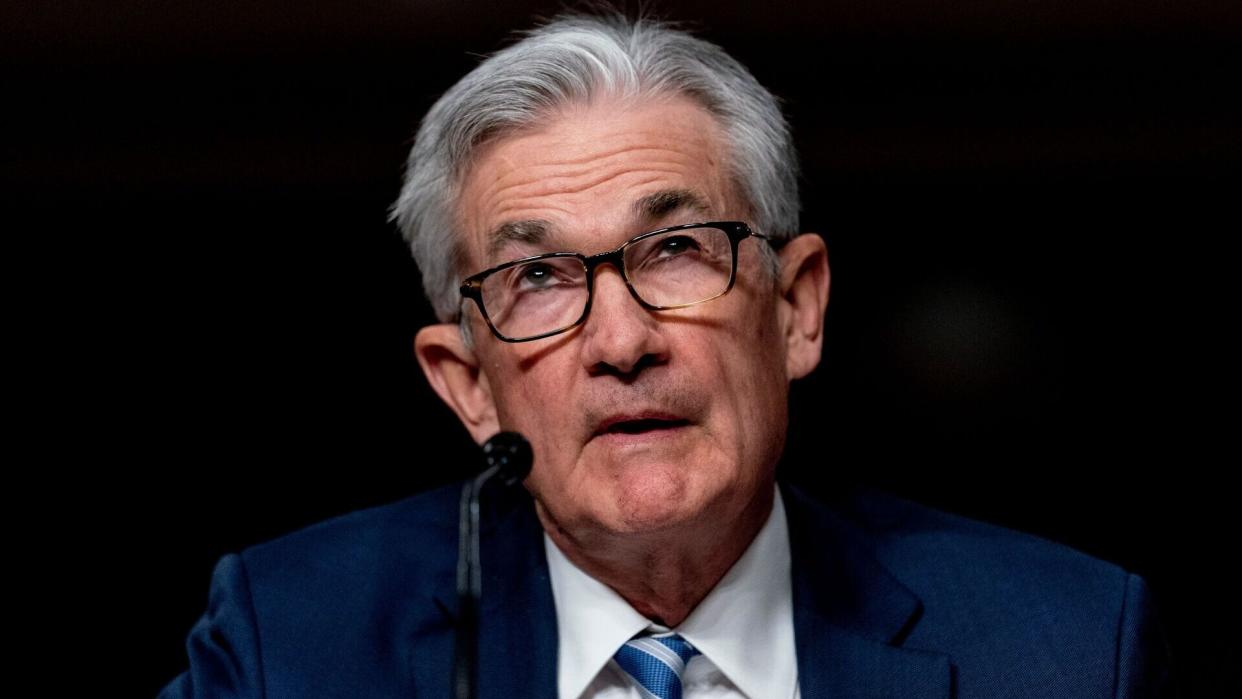Fed Chair Powell Says Omicron Poses ‘Increased Uncertainty for Inflation’

On Nov. 30, Federal Reserve Chair Jerome Powell said that the Omicron variant poses increased uncertainty for inflation, according to prepared remarks. Powell is set to testify before Congress on that same day alongside Treasury Secretary Janet Yellen.
See: Yellen: Not Raising Debt Ceiling Could ‘Eviscerate Our Current Recovery’ During Economic Update
Find: Omicron Variant Sees Moderna, Pfizer Stocks Skyrocket as Companies Target 100-Day Vaccine Timeline
“The recent rise in COVID-19 cases and the emergence of the Omicron variant pose downside risks to employment and economic activity and increased uncertainty for inflation,” Powell said in his remarks. “Greater concerns about the virus could reduce people’s willingness to work in person, which would slow progress in the labor market and intensify supply-chain disruptions.”
The World Health Organization (WHO) has labeled the Omicron variant a “virus of concern” (VOC), as preliminary evidence suggests an increased risk of reinfection regarding this variant as compared to other VOCs, per a statement. The new variant was first reported by the WHO as originating from South Africa — the news coming on Nov. 24 — and has since been detected in several other countries.
Jay Hatfield, CEO at Infrastructure Capital Management, told GOBankingRates the Fed chair’s comments support the firm’s view that the emergence of the Omicron variant will give the Federal Reserve “cover to stick with their current plan to taper vs. having to accelerate it.”
“The recent decline in oil prices of over 20% is significant as energy price increases have a 5% bleed through to core, implying a 1% decline in core. The chair continues to focus on the transitory nature of inflation, and notes Omicron presents downside risk to the forecast, which implies the Fed will not accelerate the taper, as many Fed members had suggested prior to the emergence of Omicron,” Hatfield said.
Concerns about renewed travel restrictions and lockdowns, which in turn could further affect supply chain disruptions, have been affecting the markets. Several countries have restricted travel from southern Africa, including the U.S., the U.K., Israel and Singapore.
Powell said in his remarks that pandemic-related supply and demand imbalances have contributed to notable price increases in some areas.
“Supply chain problems have made it difficult for producers to meet strong demand, particularly for goods. Increases in energy prices and rents are also pushing inflation upward. As a result, overall inflation is running well above our 2% longer-run goal, with the price index for personal consumption expenditures up 5% over the 12 months ending in October,” he added.
See: How Will the Omicron Coronavirus Variant Affect Gas Prices?
Find: Will Biden’s Build Back Better Plan Increase National Debt? Yellen Says No
Powell noted that while most forecasters, including at the Fed, continue to expect that inflation will move down significantly over the next year as supply and demand imbalances abate, “it is difficult to predict the persistence and effects of supply constraints, but it now appears that factors pushing inflation upward will linger well into next year. In addition, with the rapid improvement in the labor market, slack is diminishing, and wages are rising at a brisk pace.”
“We understand that high inflation imposes significant burdens, especially on those less able to meet the higher costs of essentials like food, housing, and transportation. We are committed to our price-stability goal. We will use our tools both to support the economy and a strong labor market and to prevent higher inflation from becoming entrenched,” he added.
More From GOBankingRates
This article originally appeared on GOBankingRates.com: Fed Chair Powell Says Omicron Poses ‘Increased Uncertainty for Inflation’

 Yahoo Movies
Yahoo Movies 
